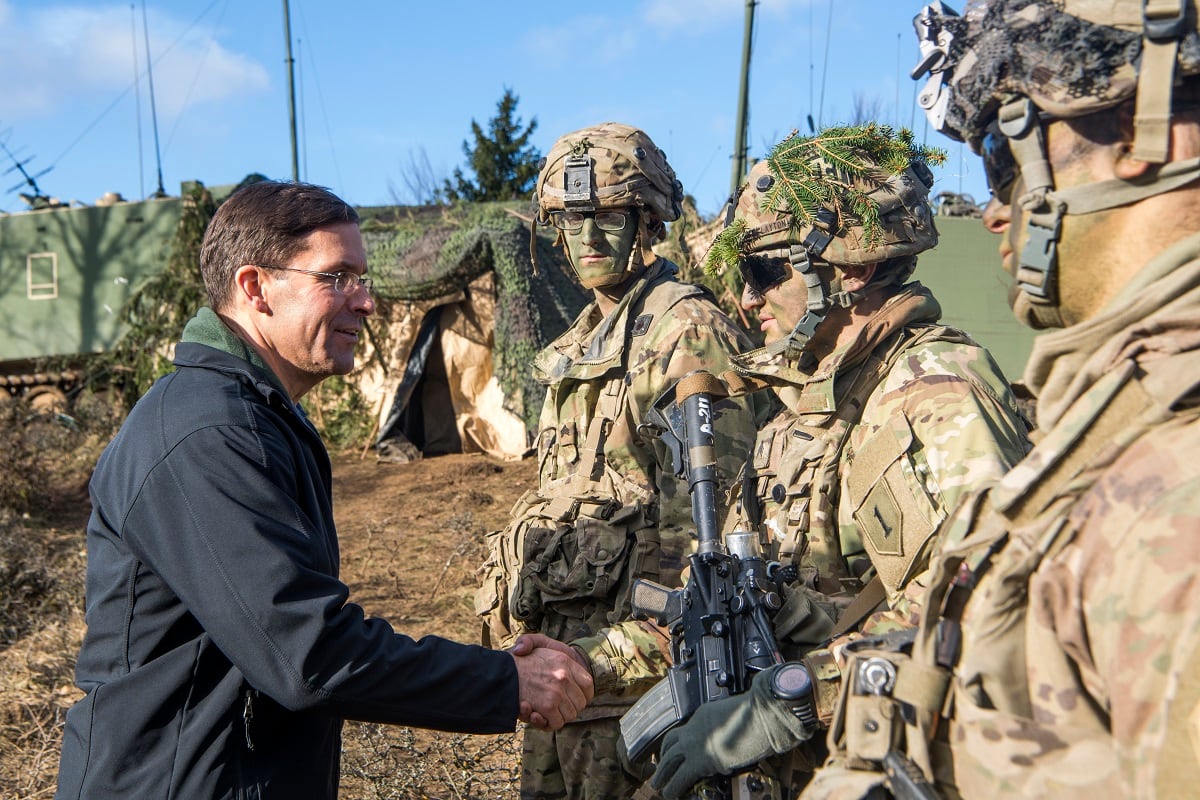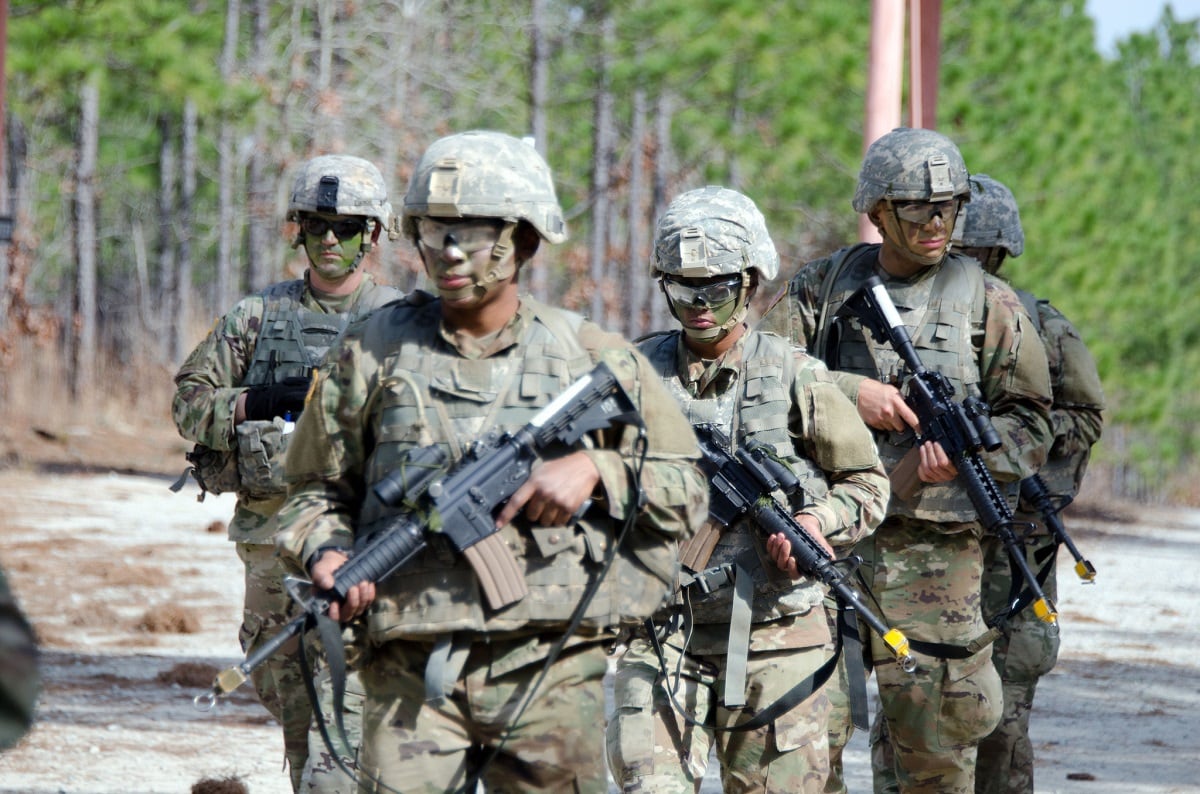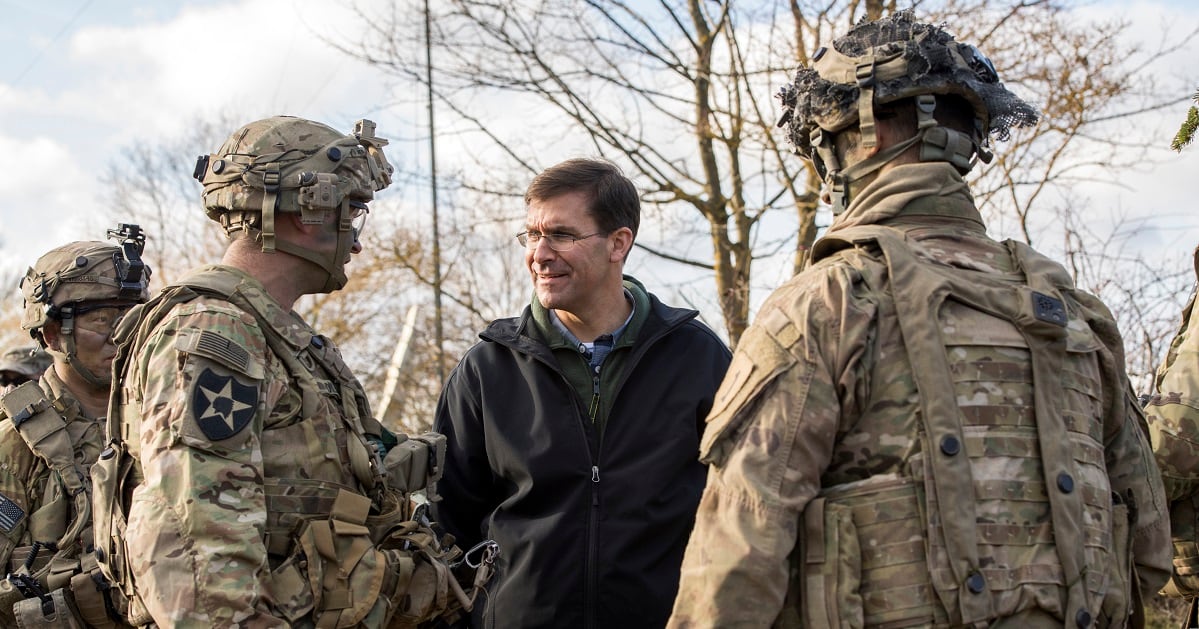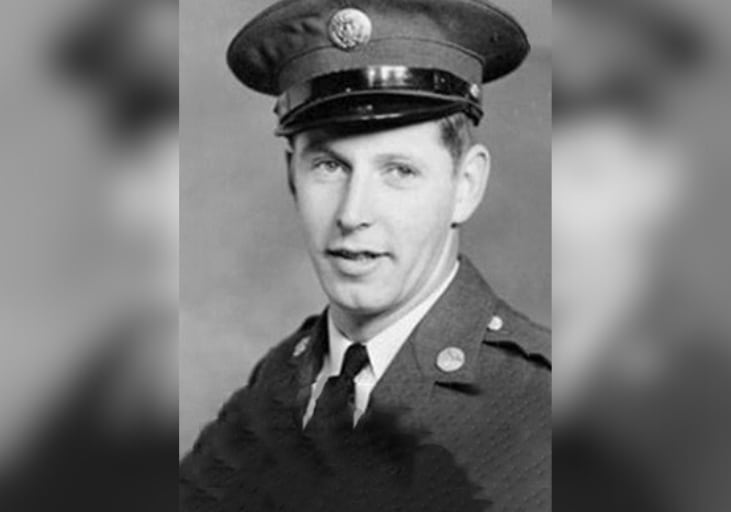Almost as soon as he took office last November, Army Secretary Mark Esper wanted soldiers to know that he was reviewing a long list of mandatory training and administrative tasks that had piled up over the previous couple of decades, and he intended to hack them up.
Since then, he has released 14 memos to that effect. The weekend safety brief is no longer a requirement handed down from headquarters. Neither are summer safety campaigns or cultural training. Also gone are holiday weekend personal vehicle inspections and the Travel Risk Planning System.
“I usually get, ‘I like this and we need more,’ " Esper said of the response from the force, in a Sept. 19 interview. “And I ask them everywhere, ‘What else do you need?’ ... Not that I’m going to just automatically do it, but, tell me what is onerous and we’ll look at it and ask ourselves.”
The secretary joined forces with Army Chief of Staff Gen. Mark Milley to put together this message: They want everything leaders do every day to contribute to readiness and lethality. And if it doesn’t, they want to get rid of it.
“We’ve got to rip apart and relieve commanders of a huge amount of administrative burden that has been placed on company commanders and first sergeants and battalion commanders and brigade commanders over multiples of years, decades in fact,” Milley told Army Times in a Sept. 24 interview. “There are so many rules and regulations and requirements and tasks out there that are riding on their backs that we are requiring company commanders to meet.”
While the service is working toward a 2022 goal to have 66 percent of brigades ready to deploy at any given time, Milley wants to reduce distractions.
“Armies only have two jobs. One is to prepare for combat and the other is to fight in combat. That’s it. That’s what we do,” Milley said. “And if it has anything to do with anything other than that, then it should be at least questioned as to why I’m doing it, because there is only so much time in the day.”
For more coverage from the AUSA annual meeting, click here.
For many of the new rules, the idea is less to do away with a long list of previously required items. Instead, it is to give commanders the discretion to do them or not based on other demands on that unit’s time. And if they do choose to do them, they can decide when, where and how long to spend on it.
"Mandatory training will not have a prescribed duration for conducting the training,” Esper wrote in the first memo, released in April. “All mandatory training must have alternative methods of delivery which do not require the use of an automated system or project system.”

Legally required programs like Sexual Harassment/Assault Response and Prevention fall into that category.
“SHARP remains important. There will be a requirement for SHARP,” Esper told Army Times. “Now, we may give you some freedom to do it a little bit differently. And what I’m trying to do is put the chain of command back in charge of teaching it and training it and everything.”
Esper has placed great trust back in the hands of commanders, with the expectation that they will use it wisely.
"What I’ve talked to staff about is, ‘Let’s measure outcomes and not activities,’ " he said. “So, it’s fantastic, right, if you do 12 [Uniform Code of Military Justice] classes a year. But if you have somebody that messes up and violates the [rules of engagement], that’s what I’m looking at, not how many classes. I’m looking at, are you internalizing it? Are you following it? That’s the metric we should use, not how many classes you did.”
RELATED

And if the stories come back and there are lapses, some of that new power can be reined back in.
“This is where division commanders have to hold brigade commanders accountable, have to hold battalion commanders accountable, have to hold company commanders,” he said. “Deal with the individual.”
Issues are going to come up no matter how much training or paperwork commanders do, he said, but it’s up to them to decide how they’re going to handle it with the tools they’ve got.
“So, how I look at leadership is I look at the staff and commanders [and say] okay, those things happen,” Esper said. “How are you reacting to it? Are you being aggressive? Are you jumping on it? Are you taking reasonable measures to mitigate it? And then follow-on measures to hold people accountable and prevent the next one. To me, that’s the measure of leadership.”
And commands will launch investigations when something goes wrong, he added.
“I sign packets every week where I’m disapproving soldiers on promotion boards or moving them out of the Army,” he said. “And certainly, in a number of incidents where you had general officers, where they’re being removed from the Army and they’re being busted a rank and things like that.”
Meghann Myers is the Pentagon bureau chief at Military Times. She covers operations, policy, personnel, leadership and other issues affecting service members.





